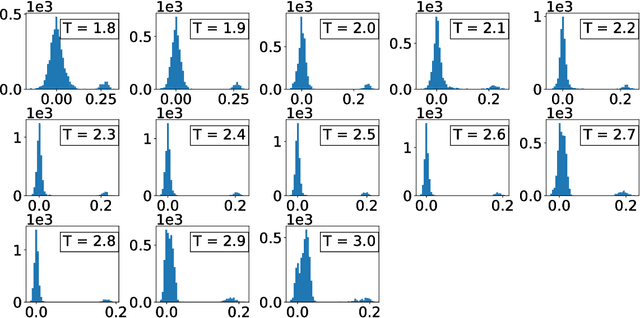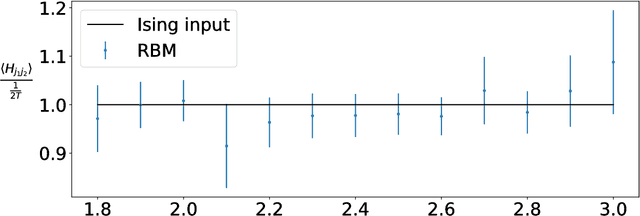Machine learning determination of dynamical parameters: The Ising model case
Paper and Code
Oct 26, 2018



We train a set of Restricted Boltzmann Machines (RBMs) on one- and two-dimensional Ising spin configurations at various values of temperature, generated using Monte Carlo simulations. We validate the training procedure by monitoring several estimators, including measurements of the log-likelihood, with the corresponding partition functions estimated using annealed importance sampling. The effects of various choices of hyper-parameters on training the RBM are discussed in detail, with a generic prescription provided. Finally, we present a closed form expression for extracting the values of couplings, for every $n$-point interaction between the visible nodes of an RBM, in a binary system such as the Ising model. We aim at using this study as the foundation for further investigations of less well-known systems.
 Add to Chrome
Add to Chrome Add to Firefox
Add to Firefox Add to Edge
Add to Edge